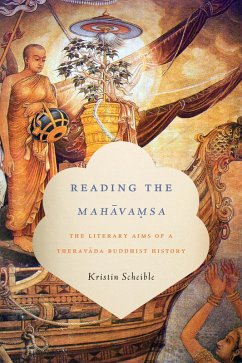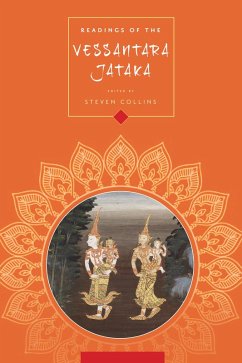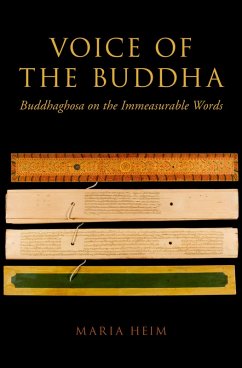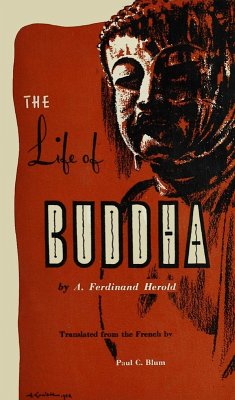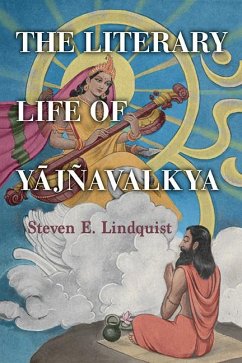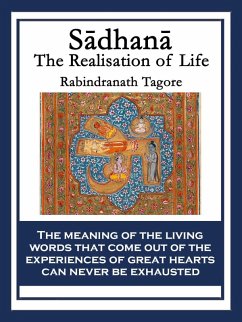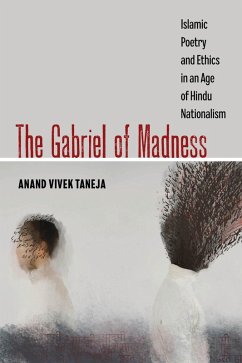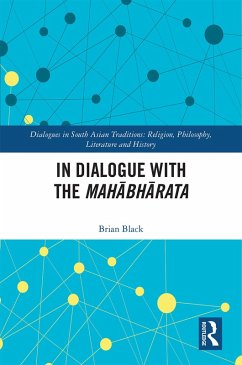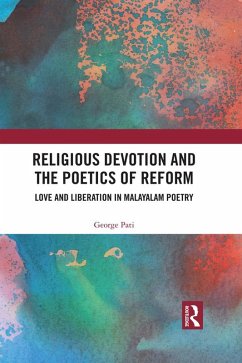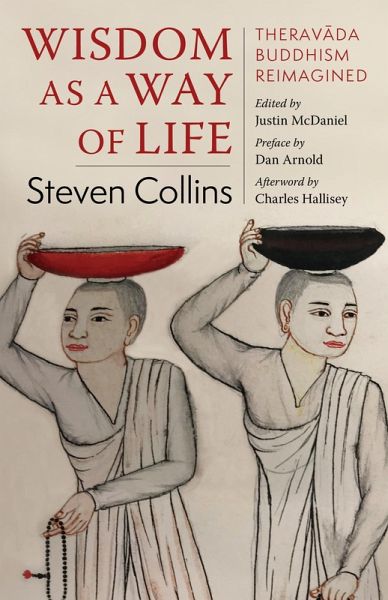
Wisdom as a Way of Life (eBook, ePUB)
Theravada Buddhism Reimagined
Redaktion: Mcdaniel, Justin

PAYBACK Punkte
13 °P sammeln!
This wide-ranging and powerful book argues that Theravada Buddhism provides ways of thinking about the self that can reinvigorate the humanities and offer broader insights into how to learn and how to act. Steven Collins argues that Buddhist philosophy should be approached in the spirit of its historical teachers and visionaries, who saw themselves not as preservers of an archaic body of rules but as part of a timeless effort to understand what it means to lead a worthy life. He contends that Buddhism should be studied philosophically, literarily, and ethically using its own vocabulary and rhe...
This wide-ranging and powerful book argues that Theravada Buddhism provides ways of thinking about the self that can reinvigorate the humanities and offer broader insights into how to learn and how to act. Steven Collins argues that Buddhist philosophy should be approached in the spirit of its historical teachers and visionaries, who saw themselves not as preservers of an archaic body of rules but as part of a timeless effort to understand what it means to lead a worthy life. He contends that Buddhism should be studied philosophically, literarily, and ethically using its own vocabulary and rhetorical tools. Approached in this manner, Buddhist notions of the self help us rethink contemporary ideas of self-care and the promotion of human flourishing.
Collins details the insights of Buddhist texts and practices that promote the ideal of active and engaged learning, offering an expansive and lyrical reflection on Theravada approaches to meditation, asceticism, and physical training. He explores views of monastic life and contemplative practices as complementing and reinforcing textual learning, and argues that the Buddhist tenet that the study of philosophy and ethics involves both rigorous reading and an ascetic lifestyle has striking resonance with modern and postmodern ideas. A bold reappraisal of the history of Buddhist literature and practice, Wisdom as a Way of Life offers students and scholars across the disciplines a nuanced understanding of the significance of Buddhist ways of knowing for the world today.
Collins details the insights of Buddhist texts and practices that promote the ideal of active and engaged learning, offering an expansive and lyrical reflection on Theravada approaches to meditation, asceticism, and physical training. He explores views of monastic life and contemplative practices as complementing and reinforcing textual learning, and argues that the Buddhist tenet that the study of philosophy and ethics involves both rigorous reading and an ascetic lifestyle has striking resonance with modern and postmodern ideas. A bold reappraisal of the history of Buddhist literature and practice, Wisdom as a Way of Life offers students and scholars across the disciplines a nuanced understanding of the significance of Buddhist ways of knowing for the world today.
Dieser Download kann aus rechtlichen Gründen nur mit Rechnungsadresse in A, D ausgeliefert werden.




